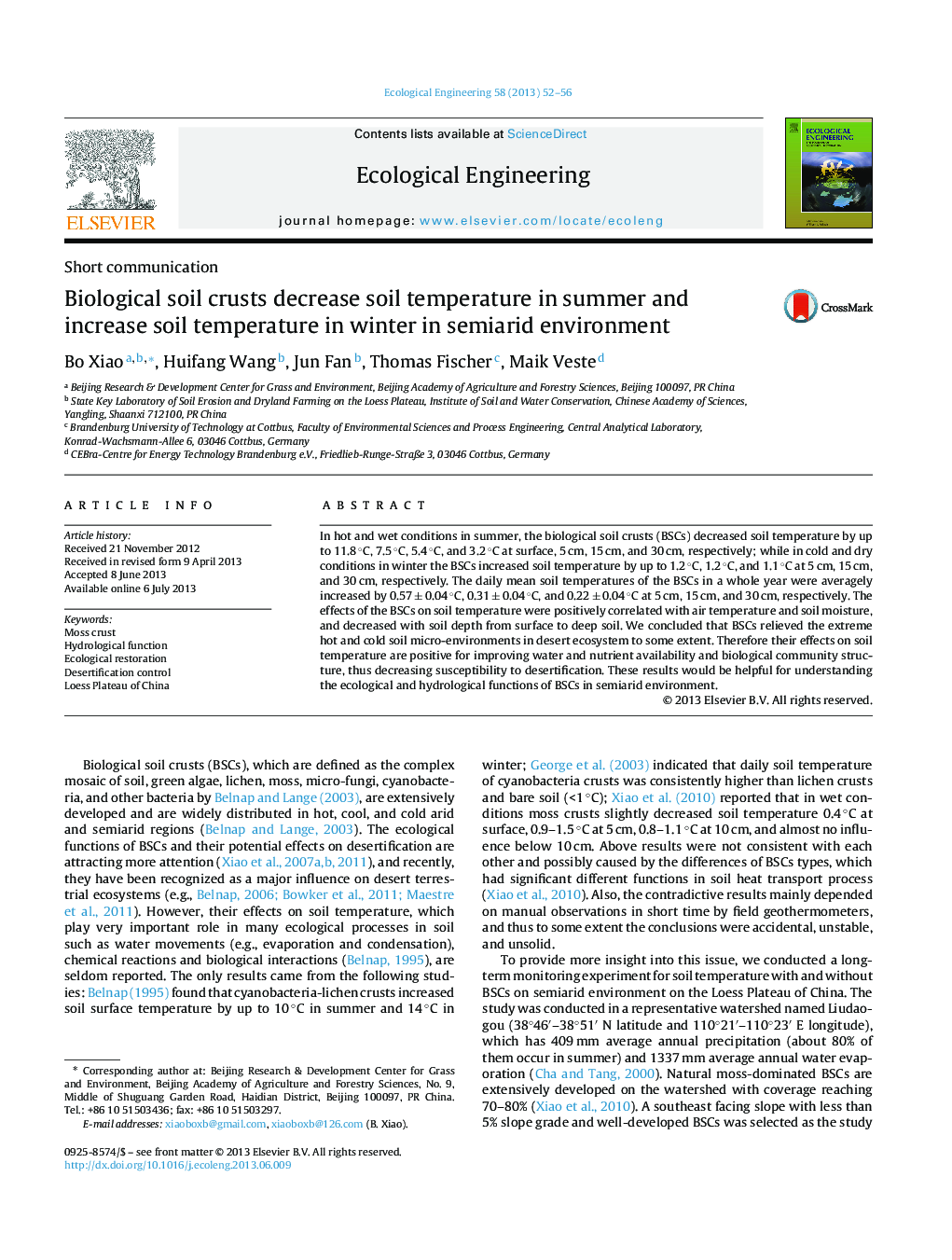| کد مقاله | کد نشریه | سال انتشار | مقاله انگلیسی | نسخه تمام متن |
|---|---|---|---|---|
| 6302471 | 1618040 | 2013 | 5 صفحه PDF | دانلود رایگان |
عنوان انگلیسی مقاله ISI
Biological soil crusts decrease soil temperature in summer and increase soil temperature in winter in semiarid environment
ترجمه فارسی عنوان
پوسته خاکی بیولوژیکی در تابستان کاهش دمای خاک و افزایش درجه حرارت خاک در زمستان در محیط نیمه خنک
دانلود مقاله + سفارش ترجمه
دانلود مقاله ISI انگلیسی
رایگان برای ایرانیان
کلمات کلیدی
پوسته ساقه، عملکرد هیدرولوژیکی، بازسازی محیطی، کنترل بیابان زایی، لس فلوت چین
موضوعات مرتبط
علوم زیستی و بیوفناوری
علوم کشاورزی و بیولوژیک
بوم شناسی، تکامل، رفتار و سامانه شناسی
چکیده انگلیسی
In hot and wet conditions in summer, the biological soil crusts (BSCs) decreased soil temperature by up to 11.8 °C, 7.5 °C, 5.4 °C, and 3.2 °C at surface, 5 cm, 15 cm, and 30 cm, respectively; while in cold and dry conditions in winter the BSCs increased soil temperature by up to 1.2 °C, 1.2 °C, and 1.1 °C at 5 cm, 15 cm, and 30 cm, respectively. The daily mean soil temperatures of the BSCs in a whole year were averagely increased by 0.57 ± 0.04 °C, 0.31 ± 0.04 °C, and 0.22 ± 0.04 °C at 5 cm, 15 cm, and 30 cm, respectively. The effects of the BSCs on soil temperature were positively correlated with air temperature and soil moisture, and decreased with soil depth from surface to deep soil. We concluded that BSCs relieved the extreme hot and cold soil micro-environments in desert ecosystem to some extent. Therefore their effects on soil temperature are positive for improving water and nutrient availability and biological community structure, thus decreasing susceptibility to desertification. These results would be helpful for understanding the ecological and hydrological functions of BSCs in semiarid environment.
ناشر
Database: Elsevier - ScienceDirect (ساینس دایرکت)
Journal: Ecological Engineering - Volume 58, September 2013, Pages 52-56
Journal: Ecological Engineering - Volume 58, September 2013, Pages 52-56
نویسندگان
Bo Xiao, Huifang Wang, Jun Fan, Thomas Fischer, Maik Veste,
